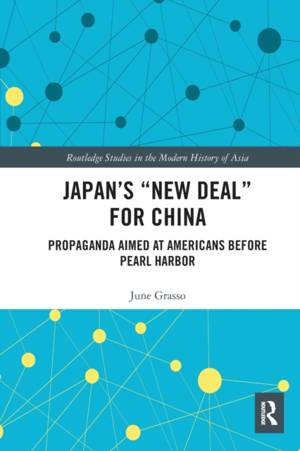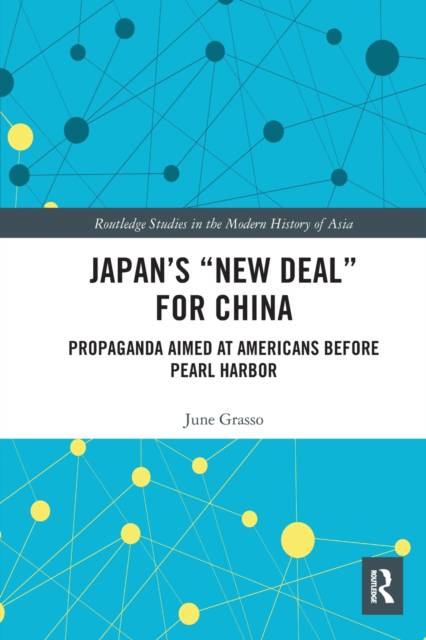
- Retrait gratuit dans votre magasin Club
- 7.000.000 titres dans notre catalogue
- Payer en toute sécurité
- Toujours un magasin près de chez vous
- Retrait gratuit dans votre magasin Club
- 7.000.0000 titres dans notre catalogue
- Payer en toute sécurité
- Toujours un magasin près de chez vous
Description
In the decade leading up to the attack on Pearl Harbor, at a time when Japan was expanding its influence in Asia, several Japanese institutions set about trying to convince Americans to support Tokyo's plans and ambitions for China. This book seeks to analyze the original publications produced by these organizations and explores the methods used by the Japanese to influence American attitudes and policy.
Four organizations active during the 1930s, the South Manchuria Railway Company, the America-Japan Society, the Foreign Affairs Association of Japan, and the Japan Pacific Association, were particularly instrumental in targeting the US. This book argues that they routinely used specific terminology to appeal to Americans, such as 'New Deal, ' 'Manifest Destiny, ' and 'Open Door.' Furthermore, the Japanese claimed that only they could meet the challenge of the growing communist threat, while their development programs would bring peace and prosperity to China. Nevertheless, American policy was not significantly altered by Japanese propaganda efforts, as documents from the administration of Franklin D. Roosevelt reveal that the president continued to prepare the U.S. for war with Japan long before Pearl Harbour.
Examining original Japanese English-language propaganda sources from the 1920s and 1930s, this book will be of huge interest to historians of Japan, China, the US and World War II more broadly.
Spécifications
Parties prenantes
- Auteur(s) :
- Editeur:
Contenu
- Nombre de pages :
- 144
- Langue:
- Anglais
- Collection :
Caractéristiques
- EAN:
- 9780367582630
- Date de parution :
- 30-06-20
- Format:
- Livre broché
- Format numérique:
- Trade paperback (VS)
- Dimensions :
- 152 mm x 229 mm
- Poids :
- 258 g

Les avis
Nous publions uniquement les avis qui respectent les conditions requises. Consultez nos conditions pour les avis.






